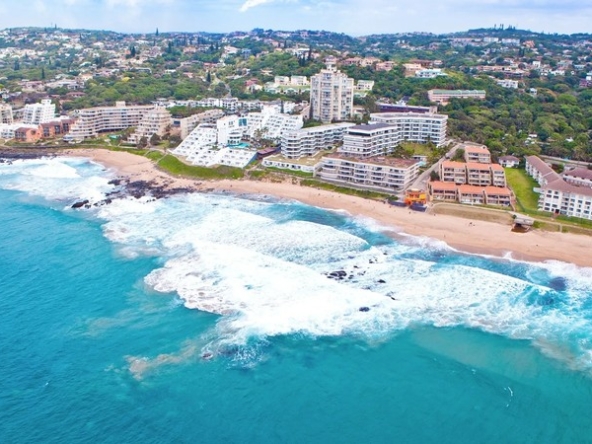It is no secret that putting down a sizeable deposit on your first home will make a huge difference to your chances of approval as well as the monthly instalment on your home loan and the total amount you owe.
The average purchase price for first-time homebuyers in Q3 this year is R1,116,672, according to ooba Home Loans, and if you take out a 100 percent bond, you will pay R12,101 a month; but if you put down a 10 percent deposit, you will only pay R10,891 a month.
Ultimately, a 10 percent deposit on this average purchase price is R111,672, and if you can save up this amount you will not only reduce your bond repayments by R1,210 every month, but also owe the bank almost R300,000 less by the end of your repayment term.
Data from ooba shows that the current average deposit for first-time buyers is 10.2 percent.
While saving up just over R100,000 may seem like an impossible task, there are ways you can do it. Experts advise that you follow these steps:
1. Create a budget
This will help you track your income and expenses so you can see where your money is going and identify areas where you can cut back.
2. Set a savings goal
Decide how much money you need to save for a deposit and how long you have to save it. This will help you stay motivated and on track.
3. Automate your savings
Set up a recurring transfer from your main account to a savings account each month. This way, you’ll save money without even having to think about it.
4. Consider government programs for first-time home buyers
The Finance Linked Individual Subsidy Programme (FLISP) is one example of a state-driven housing initiative for those earning more than R3,500 but less than R22,000 per month (which is the minimum amount needed to qualify for a home loan from a bank).
Here are some additional tips:
- Choose a high-yield savings account. This will help your money grow faster.
- Avoid debt. If you have any debt, pay it off as quickly as possible. This will free up more money for your deposit savings.
- Get professional help. If you’re struggling to save for a deposit, talk to a financial advisor. They can help you create a budget, set realistic savings goals, and choose the right savings account for your needs.
Although some banks offer 100% bonds to qualifying buyers, ooba data shows that fewer homebuyers are making use of these, opting rather to put down deposits. Applications for zero deposit bonds continued to decline in Q3 ‘23, and now account for 53.7 percent of ooba Home Loan’s total application intake. This is a drop of just over 10 percent from Q3 ‘22.
Even if you qualify for a 100% home loan, it still helps to save up for a deposit. Nedbank states that there are three good reasons to do so:
1. Your monthly instalment will be lower
A sizeable deposit is an advantage, as it reduces the size of the home loan you need. The less money you need to borrow, the lower your monthly instalments will be. More affordable payments also make it easier to qualify for a home loan.
2. You’ll have more options
Saving for a deposit could also lift you into a price bracket that you’d otherwise not be able to afford.
3. You’ll save on interest
A deposit lowers the total amount of interest that you pay over the term of your loan. If you are able to put down a 15 percent deposit instead of 10 percent, you will save even more money.
Besides saving for a deposit for your home loan, Nedbank says you may want to consider saving towards bond and transfer costs too.
For all these reasons, it may be worth taking some extra time to save up for a deposit, says Paul Stevens, chief executive of Just Property.
“Deferring the dream for a year or two in order to save towards a larger deposit will decrease the amount you have to borrow, and the amount you pay in the long term.”
But how does one save R100,000 in two years? Well, Stevens says, you’ll be “astonished” at how quickly the savings from temporary adjustments to lifestyle and spending habits can mount up.
“And what is two years of tightening your belt if it helps you enter the property market and significantly decreases your long-term bond repayments?”
To add R100,000 to your deposit, you’ll be aiming to save R50,000 per year over the next two years. That would require a monthly saving of approximately R4,200.
“Put that R4,200 away at the beginning of each month rather than attempting to save what remains after expenses. Bank your savings in a 72-day call account that offers a higher interest rate as well as accessibility while discouraging impulsive withdrawals.”
To give yourself the financial space to save this R4,200 each month, Stevens offers the following tips:
1. Investigate and cut expenses
Items like cosmetics, cleaning supplies, and grocery basics are good options. Compare prices on the shelves and opt for the cheapest alternative. Research potential savings at different wholesalers and try to find out what each supermarket store has identified as its products that are sold at a loss to attract customers. You may want to buy meat and dairy from one shop, name-brand cleaning products from another, and fruit from yet a different retailer.
2. Shopping self-control
When out shopping, only purchase necessities and focus on special offers. Better still, use online shopping so you’re not tempted in the aisles. You can still identify a few luxuries you can indulge in now and then.
3. Cook at home
Aim for homemade dishes instead of ready-to-cook or takeaway meals. This can lead to significant savings. Cook in bulk one day a week, eat one portion that night, and refrigerate the remainder. This way you will also cut down on electricity usage.
4. Relook your vehicle usage
Evaluate the need for two vehicles if you’re part of a couple. Consider selling one vehicle and opting for a scooter or downsizing to a single vehicle, especially if one or both of you work from home. Although this may seem a significant sacrifice, the reward of owning a home in just two years’ time will make it worthwhile.
5. Update insurance policies
Is your insurance policy current regarding the value of assets such as vehicles and computers? Find out if your premiums can be lowered.
6. Reconsider phone upgrades
Sticking with your current phone model and downgrading to the cheapest contract can save hundreds of rands a month. Could you join a cheaper gym or cancel your membership and take up running for the next two years instead?
7. Earn extra income
Could you start a side hustle, tutor over the weekends, or wait tables one or two nights a week? Think about what else you could do (or sell) to bring in extra money. Pay it straight into the savings account.
8. Downsize
If you rent, consider temporarily downsizing to a smaller rental unit. This will reduce rental expenses while you save for your deposit. Keep in mind that this arrangement is temporary, and the ultimate goal is to move into your own home.
9. Be frugal
If you receive a bonus, monetary gift, or commission, keep five percent to spoil yourself, and pay the rest into your savings account. Using a portion to take advantage of special bulk-buy deals is also a good option.
IOL Business



